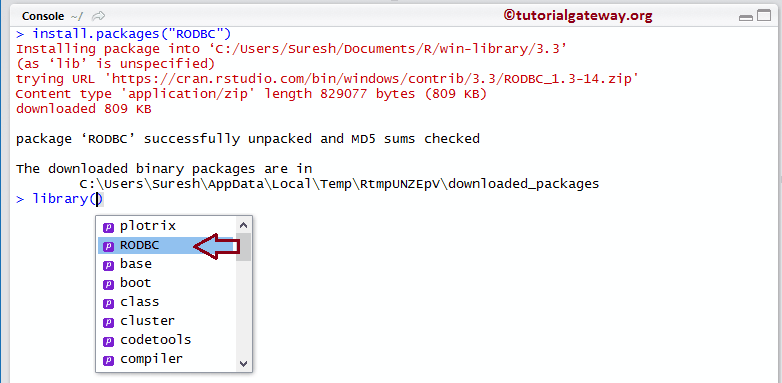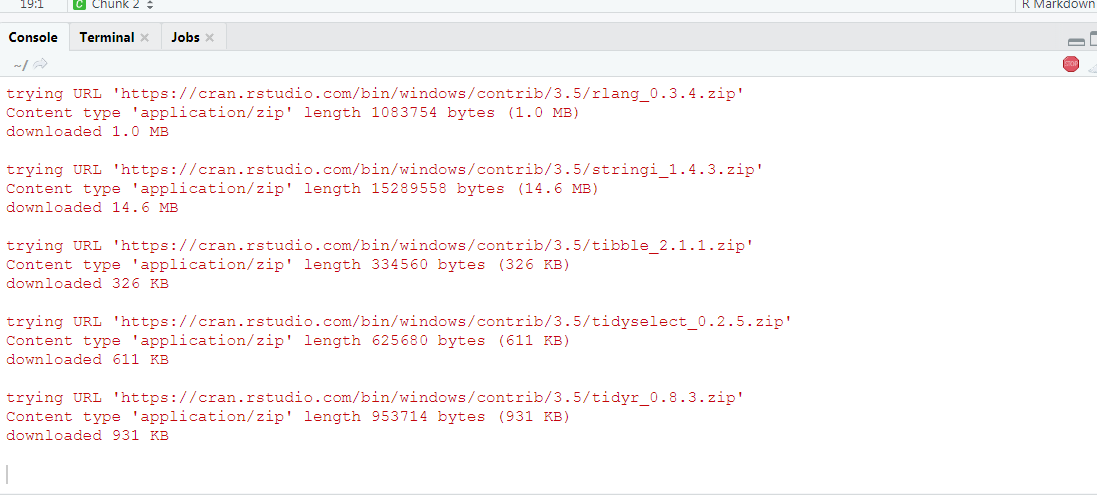

This is very convenient because not having to compile packages yourself has a huge advantage: it’s (much) faster. Pre-complied means that the package has been complied on another machine with the same OS as yours and subsequently uploaded to CRAN. When type = "binary", install.packages() will attempt to download a pre-compiled version of the requested package for the operating system (OS) you are working on.

The former is the default on Windows and some macOS versions while on Linux it’s the latter.

The install.packages() function has a type parameter that controls whether a package is installed from pre-complied binaries or from source. > PLEASE do read the posting guide > and provide commented, minimal, self-contained, reproducible code.Any subsequent call to install.packages() will make use of this globally set option unless you overwrite it by passing another value to the repos parameter. > times and still couldn't figure out the correct way to install this package. > But I am not sure how to use the install.packages command. > directory) and wish to use the package in R. > I downloaded the tar.gz file from r-project website (and saved it in a local You can also install R packages from the command line, like this: Install.packages(repos=NULL, pkgs="'ve.downloaded") If you don't want to download the package again but want to use theĭownloaded one, use the following command: If you want to install it to a differentĭirectory use the 'lib' argument of 'install.packages'. This downloads the package and installs it into the default R package


 0 kommentar(er)
0 kommentar(er)
